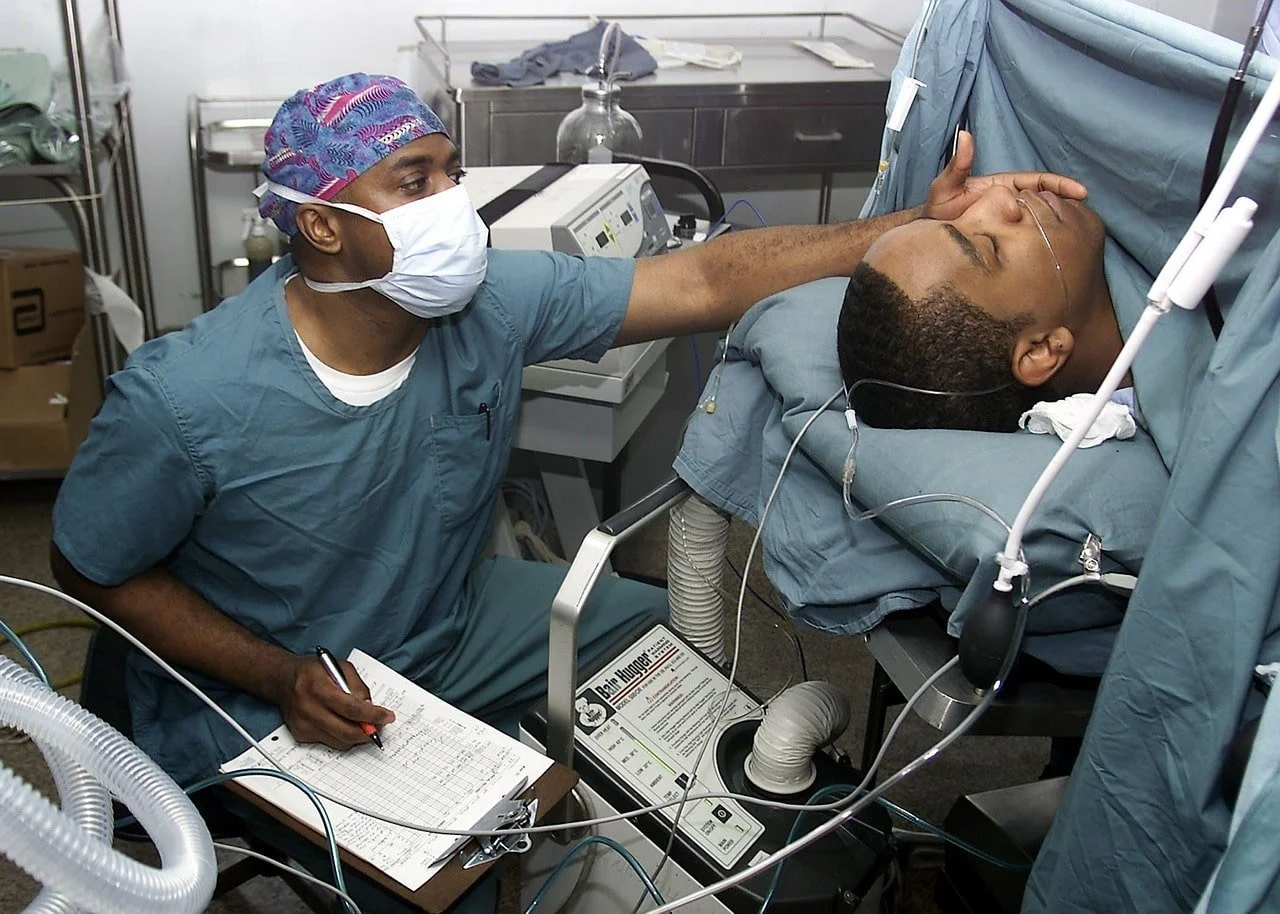Are you looking to get into PA school? This article is a complete guide to help you get into your dream PA program. According to US News and World Report, the role of physician assistant ranks as the third most popular job in the United States for 2020. With a median annual salary of $108,000 and an unemployment rate of just 1.1%, it's not difficult to see why this position is so popular.
The popularity of the physician assistant profession means that competition to get into Physician Assistant schools offering this training is fierce. Despite the growing number of schools providing Physical Assistant training, PA school applicants face increasing pressure to outperform their peers to secure a seat at their dream schools.
Getting into PA school isn't easy and can be as challenging as medical school admission. Many applicants don’t get in the first time but with the tips we'll go through here, applicants may increase their chances of acceptance in their PA training program of choice. We'll look at the Centralized Application Service for PAs (CASPA), how to best prepare for applications for becoming a PA before the next application cycle begins, and how to improve your chances of gaining admission to a PA School.
What Are the Chances of Getting into PA School?
If we look at the Physician Assistant Education Association's statistics, the answer is, "Not good." Over two-thirds of the PA applicants in the 2016/2017 academic year were declined admission. Only around three out of 10 PA school applicants were typically accepted. The remaining seven applicants had to try again the following year, or rethink their choice of career.
When we analyze each PA program individually or look at the statistics Physician Assistant Education Association (PAEA), the average rate of acceptance is about 6%. At some of the more popular schools, like Boston University, only 1.4% of applicants were accepted in the physician's assistant program. At Pennsylvania State, the rate dropped to just 0.08% of applicants. Duke, by contrast, took 3.1% of applicants. In addition, nationally, the average matriculation rate is around 6 to 7%. You can say that getting into PA school is competitive.
The statistics show that being accepted into an individual PA program or PA school require some effort. But improving your GPA, volunteering in the health care profession, and obtaining good letters of recommendation can improve your chances of acceptance.
But let's see exactly what PA school prerequisites to take and what healthcare experience you need in order to meet PA school requirements.
PA School Degree Requirements
In order to get into a PA program, you usually have to complete a bachelor’s or undergraduate degree from an accredited college or university. It does not matter whether you study at a small community college or an Ivy League school as long as you are a competitive applicant since the effect of your undergraduate institution on admissions is minimal. An additional option, instead of getting a bachelor’s degree, is to take an accelerated physician assistant program, offered to high school students, called a BS/MS Physician Assistant Program.
PA School Course Requirements
The prerequisite courses that PA school applicants have to take are:
General / Organic Chemistry
Biology
Microbiology
Human Anatomy
Human Physiology
English
Statistics
Psychology
Math
Sociology
A Foreign Language like Spanish or French
STARting PA School Right out of College
In this section, we'll look at how you can make yourself a more competitive PA school applicant. It may be challenging to get into a PA school or PA program, but you can increase your odds through careful preparation. Putting in your second-best effort won't cut it here.
It's also worth noting that the application for many PA schools will cost upwards of $1,000. You'll need to pay the CASPA fees, an admission deposit, and possibly also pay for flights and accommodation if you land an interview.
Before worrying about the process, it's essential for you to consider which PA program you'd like to attend. Research the application requirements and acceptance rates for your dream PA school or PA programs. Look past the average GPA and see whether or not you need healthcare experience or particular science courses.
Ensuring that you fit the basic criteria is the first step in getting into PA schools. To stand a decent chance of acceptance, however, you'll have to exceed those basic PA requirements. Start preparing now by volunteering so that you have some healthcare experience hours and ensure that you keep your grades high.
Gaining healthcare experience such as working as a Certified Nursing Assistant (CNA) or Emergency Medical Technician (EMT) not only gives you an edge when applying, but it confirms your choice of career as a physician assistant. Getting some hands-on experience in the areas that the program covers will give you better insights about whether the job matches your expectations or not.
About CASPA
Now that you have an idea of the competition that you're up against to get into PA school, it's time to understand how the application process works and get ready for the application season. All applications for PA programs are processed online through CASPA. This centralized database for PA school applications makes the process a lot simpler.
PA school applications open at the end of April each year. We recommend registering ahead of time so that you can get a feel for the website and learn how to navigate it. The site is relatively easy to use. PA applicants can prepare and save their PA school applications until they have completed all the information.
Please fill in as much as possible right away, such as personal details like your name and email address. Complete any fields that require data that won't change. Recheck these details a couple of times to ensure that there are no typos.
Complete any remaining fields as soon as possible. Aim to get your PA school application in as quickly as possible. You don't want to rush through everything, but delays in applying could cost you. PA training operates on a first-come, first-served basis. If two candidates are essentially equal, they will give the spot to the PA school applicant that was received first.
Start drafting your personal essay today. If you're still in college, ask your guidance counselor to assist you. If you've already left college, it's wise to seek out a mentor to help you. Where possible, form a relationship with a graduate of the PA school to which you wish to apply. They'll be able to give you practical tips to improve your application.
Please read and reread your personal essay over the space of a week. It's not enough to type up the essay the night before the application is due. Spend some time crafting and perfecting it.
The website will advise you on the supporting documents that you'll need to submit. Once your PA school application is complete, you've checked and double-checked it, and have requested the necessary supporting documents, you can submit it.
Save this Pin for later!
You'll also need to have the registrar of your current college mail original transcripts addressed to CASPA at:
CASPA Transcript Processing Center
PO Box 9108
Watertown, MA 02471
If your school uses any of the following services, they may send the application electronically:
· Credentials Solutions
· Parchment
· National Student Clearinghouse
You may check whether or not your current school uses these services by going through to this page.
Be warned that you'll pay a fee for each PA school to which you want to apply. The current costs per application are:
· $179 for the first PA school that you apply to
· $55 for each additional PA school that you apply to
The primary advantage of paying these fees is that you only have to complete and submit one application. CASPA will then send your verified information and supporting documents to each school to which you've applied. Using the service makes applying a lot simpler.
PA School Requirements and Applications
Each PA program has its own entrance requirements for applicants. The admission requirements for PA programs at the most popular PA schools are naturally stricter. Please keep in mind that the application is a two-way process. While you're hoping that the school will accept you, you also need to ensure that they'll be a good fit for you.
A PA school with a low average GPA requirement, for example, makes it easier for applicants. Lower entry requirements, however, might mean that the school adheres to a lower educational standard. That's one of the reasons that prospective PA students must also research the number of successful physician assistants who graduate from the program they're thinking of attending. Enrolling in a lousy training program minimizes your chances of passing your exams. On average, most PA programs last 26 months which include classroom instruction and clinical training (also known as clinical rotations).
Minimum Requirements FOR PA SCHOOL
· Students must aim for a minimum average GPA test score of 2.75, but this depends on the PA school. Some schools expect a GPA of at least 3.2. Your overall GPA will count, as will your GPA test scores for your science GPA test scores and course grades.
· The minimum GRE scores requirement is typically 300 overall with an average analytical writing score of 3.9, although the GRE scores for top PA schools tend to be higher.
· Having at least 100 healthcare experience (HCE) hours shadowing across a variety of specialties gives you an edge as a prospective PA student. Not having any healthcare experience at all will be a red flag for admissions. While these programs are more straightforward to complete than studying to be a doctor, there's still much work involved. Not having care experience will make the admissions board wonder if you can cope.
· A compelling personal statement. Grades from bachelor's or master's degree studies and patient care experience (PCE) only tell the admissions board that you might be a good PA candidate for their program. Use the CASPA personal statement to explain to them why you want to follow these programs. Let them know why you'll be a good fit for the PA school.
· A successful admissions interview. If you land an interview, you have the edge over the other PA candidates. Prepare for that interview well to convince the interviewer that you're the right person for their program.
Before applying to PA schools in general, please ensure that you qualify in terms of average GPA and care experience hours. If your GPA is too low, they will decline your application immediately. Without any care experience, your school has no way to make sure that you know what you're getting into with this career. Making sure that you meet their requirements saves you time and money.
Check the Deadlines
Now that you've chosen your PA school, it's essential to see what each program deadline is and to understand the PA application fee. It can take as long as six to eight weeks to verify after submission. If you're not able to complete and submit your request with enough time to allow for the verification period, you're wasting your money. Please submit before the deadline if you want to be admitted to a physician assistant program.
To be on the safe side, set yourself a personal deadline to complete the submission process at least two months before the school's deadline. Our best advice, though, is to submit your PA school application as early as possible. An early submission leaves plenty of time for the verification process. It also shows the admission board that you're serious about the program.
Many pre-PA students leave their applications until the last minute. This delay leads to a mass of applications that the PA admission board must wade through in a short time. Distinguishing yourself in this mass of applications might be difficult. Also, admissions committees are less likely to be lenient when they're faced with a swath of hopeful applicants and are under a time crunch.
Fortunately, there's a useful CASPA page that details the different kinds of deadlines. The page color-codes the deadlines so that you know what to submit and by which date you must submit. Here's a breakdown of the deadlines for different programs:
· Blue: You must submit your application by the deadline. With these schools, as long as you have submitted the application, you're fine. They're willing to wait for CASPA to complete the verification process after this date passes.
· Orange: You must submit the form, pay any deposits, have the application verified by CASPA, and also submit your recommendations by this date. Essentially, the PA school needs all the verified information before this date, or they won't consider you for their programs.
· Green: You must submit the application in time for CASPA to check it by the deadline.
Understanding the different deadlines is key to a successful application.
The Remainder of the CASPA Application
The application process allows you to make a note of the applicable deadlines. From there, you'll need to work through the following sections:
· Personal History: This is more or less self-explanatory. You can increase your odds by using a professional voicemail on your phone and set up an email address that sounds professional. Hotgirl69@gmail.com might look fun when you're in high school, but it seems childish for a physicians assistant. Choose something that you can use professionally instead - preferably a variant of your name.
· Academic History: Here, you'll enter all the courses you've taken. Don't forget any AP courses or any courses that are based on practical experience. If you like, you can have CASPA transcribe your courses for you, but it'll cost you an extra $65. Considering how competitive the applications are, this might be an investment worth making.
· Standardized Tests: This section is simple enough - all you need to do is to choose which schools CASPA should apply to on your behalf. Do make sure that you give them enough time to do this before the school's deadline.
The remaining sections include:
· Evaluations: your letters of recommendation or letters of relevance
· Achievements
· Essay
· Memberships
· Experiences
We'll deal with each of these in more detail below. Here are some additional CASPA tips for you to review.
CASPA: Evaluations
The evaluation process for physician assistant school is reasonably straightforward. You'll have to complete a minimum of three evaluation requests. You have the option of submitting an additional two evaluation requests in addition to the first three.
When you submit the request, you'll have to provide the name and address of the evaluator. We recommend speaking to these people to advise them that you're doing this before continuing. It's best to include at least one clinician that you worked with and professors from your undergraduate school.
We also recommend completing these requests as early as possible. Applying for evaluations early in the process gives your evaluators more time to create the recommendations. We advise giving them at least a month or risk them not having the time to do so.
You may choose whether or not to read the evaluations before CASPA submits them to the schools you of your choice.
This part of the process could use improvements. You may only send a second request for the information if you delete the previous one. You can track whether or not the request is complete by navigating to the appropriate page on the website. Again, the process could use improvement - CASPA doesn't remind you to follow up with evaluators.
CASPA: Achievements
In this section, you get a chance to shine. List all your achievements, such as being on the Dean's List, scholarships, honors, and publications. You’ll have a small section to explain the achievement in the description portion.
Memberships
Under memberships, list any professional organizations of which you're an active member.
Health Care Experiences
Your experience here falls into one of the following main categories:
· Non-Healthcare Employment: This includes any work experience outside of research or the healthcare field. If you worked in a restaurant, for example, you'd list it here.
· Research Experience: Any research projects that you've completed go here. You should give preference to research that's outside the classroom.
· Volunteer: This includes volunteer work experience that doesn't fall under the category of health care. If you volunteered at a soup kitchen as community service, for example, you'd list it here.
· Patient Care Experience: These are instances where you were responsible for the care of a patient which help developing clinical skills. This experience could be in a diagnostic capacity, prescribing medication, or performing a procedure, for example. Good examples include a paramedic, registered nurse, licensed practical nurse, occupational therapist, or dental hygienist. Activities such as helping at a summer camp health center, clerical work in a medical office or hospital, and first-aid responsibilities as a couch would not count towards PCE hours.
· Healthcare Experience: Health care experience includes areas where you've interacted with patients but weren't directly responsible for their care unlike the primary care providers. You might have, for example, taken their vitals, updated charts, or administered medication.
· Shadowing: Experience here counts when you've been observing another health care professional performing their duties. Shadowing physicians assistants is ideal, but you could also shadow doctors, nurses, or many other professionals in the field.
· Leadership Experience: Here, you'll list situations where you were in charge of an organization such as a club or professional association.
· Extracurricular Activities: These should be experiences that don't quite fit the above, but that are relevant to your application. Don't list paid work, but rather activities like academic clubs.
· Teaching Experience: Here, you'll list any experience as a tutor or teaching assistant, for example.
Before You Submit Your Application to PA School
Once you've completed all the sections and the personal statement, you're almost ready to hit the "Submit" button. Before you continue, check your PA application one more time. If possible, have someone objective, like a teaching assistant, or, if possible, a professor, read it through for you.
They should pay special attention to your PA school personal statement when looking through your PA application. Once you're sure that all is in order, submit the request so that CASPA can process it.
One quality you'll need if you hope to become a PA is patience. This situation is the ideal opportunity to practice that patience, since the verification process for PA programs is a lengthy one. You won't do yourself any favors by checking the system many times a day. You also shouldn't phone the schools to see if your application has gone through.
Where possible, distract yourself by taking on patient care assignments. While this won't assist in the PA application process, it gives you more time to gain new experiences. The admissions committee of a PA school will also appreciate you taking on patient care assignments. The more patient care experience you have, the better physician assistant you'll be.
Where possible, forget about the process and check once a week. Remember that the verification process could take as long as six to eight weeks. We do recommend keeping an eye on whether or not your evaluators have completed the evaluation process. That's one thing that you can exercise some control over.
As you start nearing the deadline for submission, keep an eye out for communications from the PA school. Most PA schools ask prospective students to elaborate on their personal statement through interviews or supplemental applications.
These secondary requests help the PA school to narrow down its options and to gauge a prospective PA student's suitability. They're looking for more information, signs that you're committed, will fit in with the school's culture, and that you have a good chance of succeeding. Poor academic performance reflects poorly on the school, so they must assess PA candidates carefully.
Landing an interview is the next step in the process. Many of the admissions boards prefer to interview the student in person. If getting there in person isn't an option, most schools will allow video conference interviews instead.
Preparing for the PA school interviews is essential. Research the PA school and the program well upfront. This information will help you to deal with many of the questions about why you're a good fit for the PA school. If you're particularly nervous, it helps to undergo a mock interview with someone you trust.
A mentor who attended the same PA school would be an excellent resource to draw on where possible. Alternatively, some services will help you prep for your PA interview. Performing a dry run can be a useful way to prepare for the one-on-one meeting.
During the interview itself, allow your natural personality and interpersonal skills to shine through. Remember always to be respectful and also show your gratitude that they've spent time interviewing you.
Congratulations - You've Made It
Hopefully, your PA application was approved and you're ready to start your physician assistant studies. If so, give yourself a high-five! Being one of the 30% that make it through is quite an achievement, and you are well on your way to a great PA profession.
If you didn't quite make it this time, take heart - there's always next year. Take this year as a good lesson and build on what you've learned.














